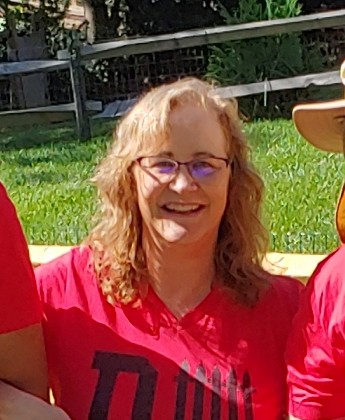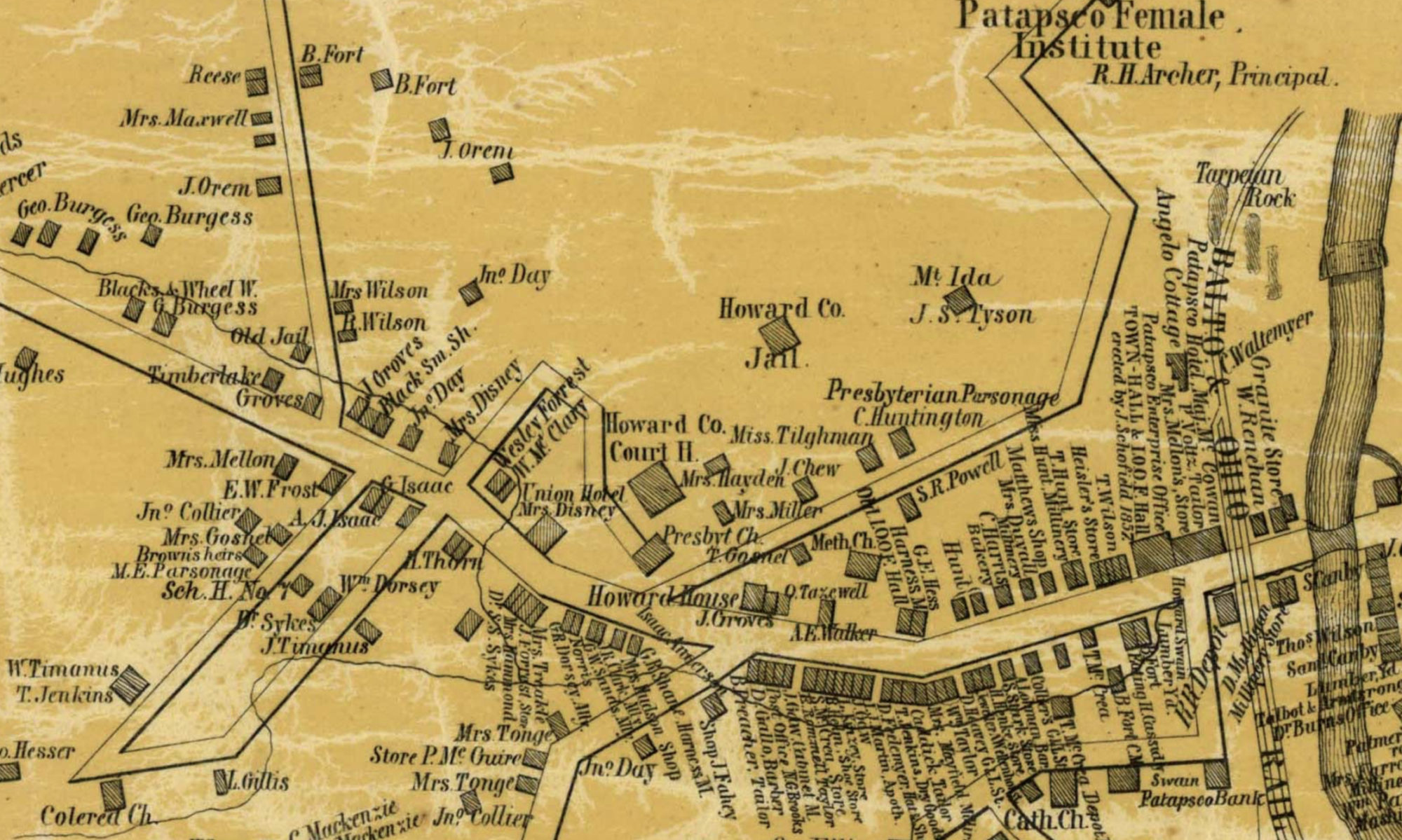The most recent HCLTR posting about Hezekiah Brown illuminated the ongoing terror campaign in white Howard County society, preserving the illusion that subjugating African Americans was a justified way of life, appealing to invented fears of violence toward white Americans. The Baltimore American newspaper reported the lynching of Reverend Hezekiah Brown after he was allegedly intimate with a white woman named Fannie Schultz, “excised an undue influence over her”, and “carried her to a colored minister” where they were married. Truth be told, Reverend Brown was not married to Fannie. Her son attended the school where he taught. Rev. Brown taught at the Asbury Chapel, and he later became the Principal of the Ellicott City Colored school. He was most certainly not lynched. A fact that could have been easily confirmed with simple research strategies, but maybe that wasn’t the point. (Personally, I think that the way the news was reported back at this time was part of the problem. The state’s attorney for HC sent someone to investigate after the story broke. I suspect that’s what led to the retraction. One wonders if a retraction would have happened had it not been a situation involving what was a crime.)The Baltimore Sun printed a story two days later revealing that Reverend Brown had not been lynched and the Baltimore American subsequently retracted the article, but not until after their original lynching story had been picked up by newspapers in other states. So why is this important? Fear. Fear and the justification for white violence ensuring subjugation. An ongoing terror campaign to keep the “us vs. them” alive and well in Howard County, keeping the door wide open for justified violence and oppression against the African American citizens in Howard County.
So where does this fit into the Howard County I grew up in and where I am proud to live and work to this day? I feel blessed to be one of the first kids to move into Columbia, to be a member of the first kindergarten class at Bryant Woods and to graduate from Wilde Lake High School. My commitment to this community continued professionally and personally. I was fortunate to work in Howard County as a police officer and then as an employee of the public school system. For me it was a personal dedication to the philosophy of diversity and equity in community work that was the foundation of my life. I continued to engage with the Columbia dream with my children, who also attended from kindergarten through high school in the Columbia schools. Columbia has been the linchpin around which my life has turned and I recognize how important it is to me.
When this project started, I recognized the importance of truth and reconciliation as a part of the Columbia philosophy. In the late 1960s, Columbia was designed by James Rouse as a controversial community that attempted to make a small dent in the “us vs. them” by bringing together people of different faiths, different race and ethnicity, different socioeconomic status; to try to get rid of the “railroad track divide” typically seen in most American towns where neighborhoods were divided and people didn’t dare cross those “tracks” out of fear of retribution. What I notice now in Howard County is the resurgence and desire to rebuild those “railroad tracks”, to divide, to feed the fear behind the “us vs. them”. It’s what I see when house values vary widely just a few streets over. It’s what I see when people will go to great lengths to keep their children out of certain schools because they have worked hard to keep their children out of schools with “those kinds of people”. The perspective that there are not enough seats at the table and that success is only achieved through the calculated and systematic oppression of many other people.
Howard County has a history that affects each one of us today, whether we know it to be able to acknowledge it, or not. Facing these truths and tearing down the gates designed to keep people as less than is an important part of being a member of the Howard County community. My spiritual community in Columbia has a saying, “Love over Fear”. They are my quirky, loving, rule bending, accepting community that told me as a child that I was loved and I was enough just as I am. This community, that is mostly white, strives to acknowledge the role it plays in historical injustice and to try to right those wrongs through words and deeds, because if it hurts the heart of one it hurts all our hearts. Recently our community struggled with the name of the building where we worship. The building was named after the Olivers who owned slaves in Howard County. This was not a commonly known fact until members of the group began the process of reckoning with our history. Despite the COVID-19 pandemic we struggled with our response to this knowledge of the building’s history, working through a group process via Zoom We ultimately decided to change the name of the building where we worship because we are a community based on love and acceptance, and because what we do matters. We still have a long way to go and we continue to work together to find ways to remove barriers so that all are welcome in our spiritual family. For me, I try to bring that love with me everyday and when I feel fear welling up, I ask myself to begin again with love.
(Memorial marker in the KC Church Sacred Garden)
“We cannot right the wrongs of the present without a fuller and deeper knowledge of the slave past” – Henry Louis Gates Jr.


Annie’s
I truly commend your work and support it 100%.
Thanks Frank! It means a lot to me to have your support.
Annora- thank you. Very well written. I also support your work.
Thank you Ellen. You too have worked hard all year leading with grace to acknowledge and embrace the truth.
Thank you Annora. The Kittamaqundi Community never got to properly dedicate the plaque with a public ceremony, due to bad weather, then Covid. We will, though! Along with the new name for our building. You are a joy, and an asset to our community, as is the HCLTR team.
Thank you Ken. One day in 2021 we will all finally get together to embrace our history, for once we know we cannot un-know and in turn must take action.
Such important work! Thank you!
What a thoughtful sharing, Annora. Thank you for taking the time to dive deep into the record and reflect back on it so insightfully for us all. Such important work.